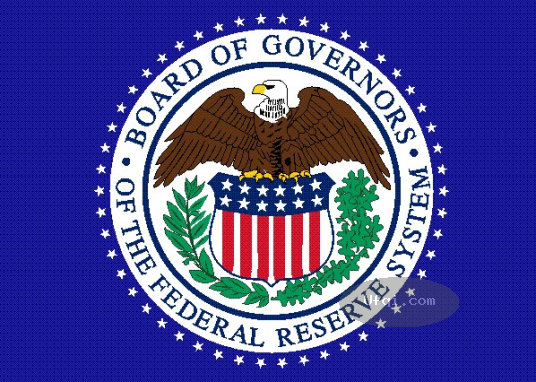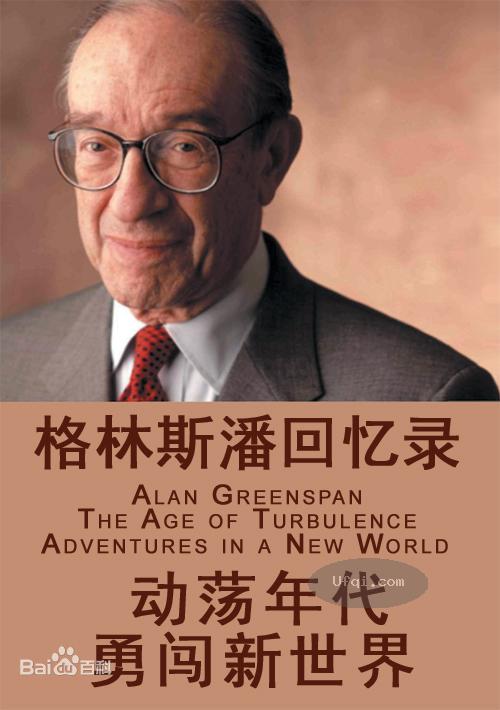


2023-05-07 , 8729 , 104 , 136
美国联邦储备委员会主席艾伦格林斯潘回忆录——动荡年代:勇闯新世界-the age of turbulence-32
Before long, the administration began blaming its troubles on the Fed.
Supposedly we were choking the economy by keeping the money supply too tight. I got my first taste of this in August 1989, while Andrea and I were visiting Senator John Heinz and his wife, Teresa, at their Nantucket summerhouse. We put on the Sunday morning talk shows and there was Dick Darman on Meet the Press, I was only half paying attention when I heard him say, "It's important to not merely Chairman Greenspan but the other members of the Board and the FOMC ... that they be more attentive to the need to avoid tipping this economy into recession. I'm not sure they're quite there yet." I nearly spilled my coffee. "What!" I said.
Listening to his argument, I thought it made no economic sense. But then I realized
it didn't have to: it was political rhetoric.
Treasury Secretary Brady didn't like the Fed either. He and the president were friends and had a lot in common—both were wealthy, Yale-educated patricians and members of Skull and Bones. Nick had spent more than three decades on Wall Street, rising to become chairman of a major investment house. He brought with him to Washington a depth of real-world trading experience and the habit of command.
Throughout the Bush administration, Nick and I cooperated on many major issues—we traveled to Moscow in 1991 and worked closely and effectively on complex matters of bank regulation and foreign exchange. Not only did he and I work together, but he even invited me down to Augusta National to play golf, and Andrea and I socialized with him and his wife, Kitty.
But he reinforced President Bush's instrumental view of monetary policy.
To Nick, slashing short-term interest rates seemed a no-risk proposition: if the Fed flooded the economy with money, the economy would grow faster.
We would have to stay on the lookout for a flare-up of inflation, of course,
but if that happened, the Fed could rein it back in. If I had done what they wanted, I'd have pushed for faster, steeper cuts, and no doubt have had my head handed to me by the market—deservedly.
119
The treasury secretary, however, was not receptive to debate. Like many traders, he'd had great success going by his gut; in matters like exchange rate policy, I found his sense of the markets quite acute. But he was not a conceptualize and was not inclined to take the long-term view. Nick and I would meet for a working breakfast once a week, and whenever the subject of monetary policy came up, we would simply go round and round.
This impasse made coping with the deficit and the recession doubly difficult, because it meant the administration was always looking for a quid pro quo from the Fed. When the 1990 budget bill was on the table—and President Bush finally faced the necessity of breaking his no-new-taxes pledge—Nick asked me for a commitment that if the budget went through, the Fed would lower interest rates.
In fact, the budget package impressed me. It included a couple of Dar-man innovations that I thought were very promising, such as a "pay-go" rule that any new spending program had to have some offsetting source of funding,
either a new tax or a budget cut ("pay-go" was Washington shorthand for "pay as you go"). The proposed budget did not cut the deficit as deeply as it might have, but the consensus at the Fed, with which I agreed, was that it was a big step in the right direction. In a congressional hearing in October when the budget was finally up for approval, I pronounced the plan "credible"—which might sound like faint praise, but it was enough to make the stock market jump, as traders bet that the Fed would instantly cut interest rates. Of course, we had no such intention: before easing credit, we needed to see first whether the budget cuts actually became law, and most important, whether they had any real economic effect.
So I was always very careful in what I privately told Nick. I said, "A sound budget will bring long-term rates down because inflation expectations will fall. Monetary policy, appropriately, should respond to that by lowering short-term rates." This was standard Fed policy, but it frustrated Nick because it was not the promise he was looking for.
When the recession hit that fall, the friction only got worse. "There has been too much pessimism," President Bush declared in his 1991 State of the Union address. "Sound banks should be making sound loans now, and interest rates should be lower, now." The Fed, of course, had been lowering rates for over a year, but the White House wanted more, faster cuts.
120
PHOTOGRAPHIC INSERT 1
Age five, Washington Heights, New York City, 1931.
The collection of Alan Greenspan
With three cousins on the Greenspan side, circa 1934
(I'm on the left).
The collection of Alan Greenspan
Sixteen years old, Lake Hiawatha, New Jersey.
The collection of Alan Greenspan
My father, who sold stocks on Wall Street, left
my mother when I was two. When I was nine,
he gave me a copy of his book, Recovery Ahead!,
which confidently predicted the end of the Depression and included this affectionate, if somewhat mystifying, inscription: "To my son Alan: May this my initial effort with constant thought of you branch out into an endless chain of similar efforts so that at your maturity you may look back and endeavor to interpret the reasoning behind these logical forecasts and begin a like work of your own."
Photograph by Darren Haggar
After a year at the Juilliard School, I toured the country as a sideman with the Henry Jerome dance band, playing saxophone and clarinet (I'm sitting at far left). I also did tax returns for the band members. Courtesy of Henry Jerome Music With my mother, Rose Goldsmith, a brave and lively woman who gave me my love of music.
The collection of Alan Greenspan



By 1950,1 was earning enough as an economist to think about leaving New York City for the suburbs, which I did just over a year later.
The collection of Alan Greenspan
Of all my teachers, Arthur Burns and Ayn Rand had the greatest impact on my life.
An economist who did groundbreaking work on business cycles, Burns was my faculty adviser and mentor during my first year of graduate school at Columbia, and years later persuaded me to finish my Ph.D. He served before me as head of the Council of Economic Advisors and chairman of the Federal Reserve Board. Ayn Rand expanded my intellectual horizons, challenging me to look beyond economics to understand the behavior of individuals and societies.
LEFT: Bettmann/Corbis; RIGHT: The New York Times/Getty Images
Adam Smith's Enlightenment ideas of individual initiative and the power of markets came back from near eclipse in the 1930s to their current dominance of the global economy.
Smith (above left) remains among my deepest intellectual influences.
I was also influenced by the thinking of John Locke (above right), the great British
moral philosopher who articulated fundamental notions of life, liberty, and property, and Joseph Schumpeter, the twentieth-century economist whose concept of creative destruction gets to the heart of the role of technological change in a modern capitalist society.
TOP LEFT: Hulton Archive/Getty Images; TOP RIGHT:
Bettman/Corbis; BOTTOM RIGHT: Getty Images
At my firm, Townsend-Greenspan, I focused on heavy industry—textiles, mining,
railroads, and especially steel. Studying steel put me in an excellent position to warn of the recession of 1958—my first forecast of the U.S. economy as a whole.
Walter Daran/Time Life Pictures/Getty Images
When I took my first Washington job in 1974, I left Townsend-Greenspan in the hands of vice presidents (from left) Kathy Eichoff, Lucille Wu, and Bess Kaplan
(seated).
Former vice president Judith Mackey (right) came back temporarily to help out.
The predominance of women made Townsend-Greenspan unusual in the economics
world.
The New York Times/Redux
My involvement in public life started with Richard Nixon's campaign for the presidency in 1967.
I was an unpaid member of the campaign staff. Though I was impressed by Nixon's intelligence, he had a dark side that troubled me, and I decided against joining the administration.
Seated to my left at this July 1974 meeting is Hewlett-Packard cofounder David Packard, who served as deputy secretary of defense from 1969 to 1971. Bettmann/Corbis
My mother congratulates me after I was sworn in as chairman of the Council of Economic Advisors,
while President Ford looks on. With the nation reeling from Watergate, high oil prices, and inflation,
it was a challenging moment to take a government job. Bettmann/Corbis
At this April 1975 meeting in the Oval Office to discuss economic policy, Secretary of State Henry Kissinger had just interupted with news of the U.S. evacuation of Saigon. Left to right: President Ford,
Deputy Chief of Staff Dick Cheney, me, Chief of Staff Donald Rumsfeld, Vice President Nelson
Rockefeller, and Kissinger. David Hume Kennerly/The Gerald R. Ford Presidential Library/Getty Images
The White House senior staff often gathered in the chief of staff's office to watch the evening news and chew over the day's events. I would add my two cents from the carpet, where I'd stretch out to ease my aching back. David Hume Kennerly/The Gerald R. Ford Presidential Library/Getty Images
Working at Camp David, left to right: Secretary of the Treasury Bill Simon, Press Secretary Ron
Nessen, President Ford, Dick Cheney, Donald Rumsfeld, and me. David Hume Kennerly/The Gerald R.
Ford Presidential Library/Getty Images
With President Ford in Palm Springs, 1980. Contrary to his reputation for being
physically clumsy, he was a formidable golfer and a former All-American football
player. Photograph by Neil Leifer
During the presidential campaign of 1980, my mission on this cross-country flight with Ronald Reagan was to brief him on a long list of domestic issues. Adviser Martin Anderson, in the foreground, put me up to it. "He'll listen to you," he said. But I couldn't get Reagan to stop telling Stories. Michael Evans photograph, courtesy of the Ronald Reagan Presidential Foundation
At the Republican convention that July, Henry Kissinger and I tried to
persuade former president Ford to become Reagan's running mate. Polls
showed that Reagan and Ford would be a "dream ticket," but after a
suspenseful twenty-four hours, the negotiations fell apart and the vice
presidential nomination went to George H.W. Bush.
David Hume Kennedy/'Getty Images
Social Security developed financial trouble in the late 1970s and early 1980s, and both Republicans and Democrats knew that it had to be fixed. Reagan's reform commission, which I ran, achieved a compromise. Joining Reagan in the Rose Garden in April 1983 as he signed it into law were leaders from both parties, including Senator Bob Dole (to my left in the photo), Congressman Claude
Pepper (partially obscured), and House Speaker Tip O'Neill (joking with the president). The caricature below appeared that year in the financial press.
ABOVE: AP Images/Barry Thumma; BELOW: David Leinne
On June 2, 1987, President
STOCKS PLUNGE 508 POINTS, A DROP OF 22.6%;
604 MILLION VOLUME NEARLY DOUBLES RECORD Volcker as chairman of the Fed.
of October 19, 1987.
ABOVE: Courtesy of the Ronald Reagan
Library; LEFT: Copyright . 1987 by
the New York Times Co. Reprinted
with permission.
History took an astonishing turn when the Berlin Wall fell in November 1989. But even more amazing to me in the following days was the economic ruin exposed by the fall of the wall. By the time Soviet premier Mikhail Gorbachev made his third visit to the United States during the following spring, the Soviet Union itself had begun to disintegrate.



UfqiLong
He is shown below with President George H. W. Bush and me in a receiving line at a state dinner in Washington on May 31, 1990.
LEFT: AP Images/John Gaps HI; BELOW: Courtesy of the George Bush Presidential Library
The strain between President George H. W. Bush and the Federal Reserve Board was evident in this July 1991 meeting in the Oval Office. He made no secret of his view that the Fed hadn't eased interest rates sufficiently. He reappointed me as chairman that year but later blamed me for his loss of the presidential election of 1992. Courtesy of the George Bush Presidential Library
The Federal Open Market Committee, the Fed's most powerful and sensitive decision-making group, in session in June 2003. It meets eight times a year.
Federal Reserve photo—Britt Leckman
I had access to an increasingly broad range of information in my Fed office, as technology revolutionized economic analysis at the Board.
Photograph by Diana Walker
I made it a point to reserve time each day for quiet study and reflection.
Photograph by Linda L. Creighton
BLACK MONDAY
I still have a letter Nick sent me during that time. He'd taken the extraordinary
step of inviting eight prominent economists from industry and academia to the White House for lunch with the president.
At the lunch, each economist was asked whether the Fed ought to further cut short-term rates. Put on the spot in front of the president, Nick wrote,
"every single one replied that it would do no harm"—
and virtually all felt it would help.
"Alan, in my travels you stand alone in your view,"
the letter continued, complaining bluntly of "lack of forceful leadership by the Fed."
In the event, the administration's bark was worse than its bite. As my term as Fed chairman ended in the summer of 1991, there was a behind-thescenes meeting in which the treasury secretary was fishing for a commitment to further relax monetary policy in exchange for a second term. Nick later claimed I had made such a deal. In fact there was no way I could commit to that, even if I had wanted to (and even though I privately thought our rate decreases might continue). Nonetheless, President Bush reappointed me. I think he concluded I was his least worst choice: the Fed itself by all accounts was functioning well, there was no other candidate whom Wall Street seemed to prefer, and a change would have roiled the markets.
The impasse on monetary policy made it hard for Nick and me to remain friends; though we continued to cooperate professionally, he canceled our weekly breakfasts, and our socializing came to an end. With the election year nearing, the administration decided to change its approach to the Fed and its pigheaded chairman. The "Greenspan account," as they called it in the White House, shifted to CEA chairman Mike Boskin and the president himself.
The recovery was in fact finally picking up steam as the campaign season began. By July I felt confident enough to declare that the fifty-mile-per-hour headwinds had partially abated. Later analysis showed that by spring GDP (which in 1990 replaced GNP as the standard measure of aggregate output) was growing at a healthy 4 percent annual rate. But that was hard to discern at the time, and the president, understandably, was concerned that the growth be as robust and obvious as possible.
121
I met with the president only a handful of times that year. He was always extremely cordial. "I don't want to bash the Fed/' he'd say.
He'd probe and raise substantive questions based on what he'd been hearing from his business contacts. He'd ask things like, "People are saying restrictions on bank reserves are part of the problem; how should I be looking at this?"
These were not questions Reagan would have raised—he had no patience for discussing economic policy—and I was delighted that Bush wanted to know. I felt a lot more comfortable dealing with him than I did with Brady because the discussion was never adversarial. But when we talked about interest rates, I was never able to convince him that lowering rates further and faster almost certainly wouldn't have speeded the recovery and would have increased the risk of inflation.
The fact was; the economy was recovering, just not in time to save the election. The deficit probably hurt Bush worse than anything else. Although the belated budget cuts and the tax hikes of 1990 had put the country on a somewhat better fiscal footing, the recession cut so deeply into federal revenues that the deficit temporarily mushroomed.
It hit $290 billion in the last year of Bush's term. Ross Perot was able to hammer at that in the campaign and succeeded in dividing the Republican vote enough to sink Bush.
I was saddened years later when I discovered that President Bush blamed me for his loss. "I reappointed him and he disappointed me," he told a television interviewer in 1998.
It's not in my nature to be suspicious. I realized only in retrospect the extent to which Brady and Darman had convinced the president that the Fed was sabotaging him. His bitterness surprised me;
I did not feel the same way about him. His loss in the election reminded me of how voters in Britain had ousted Winston Churchill immediately after the Second World War. As best I could judge, Bush had done an exemplary job on the most important issues confronting the United States, our confrontation with the Soviet Union and the crisis in the Middle East. If a president can earn reelection, he did. But then, so did Winston Churchill.
122
(未完待续, To be contd)



🔗 连载目录
🤖 智能推荐









